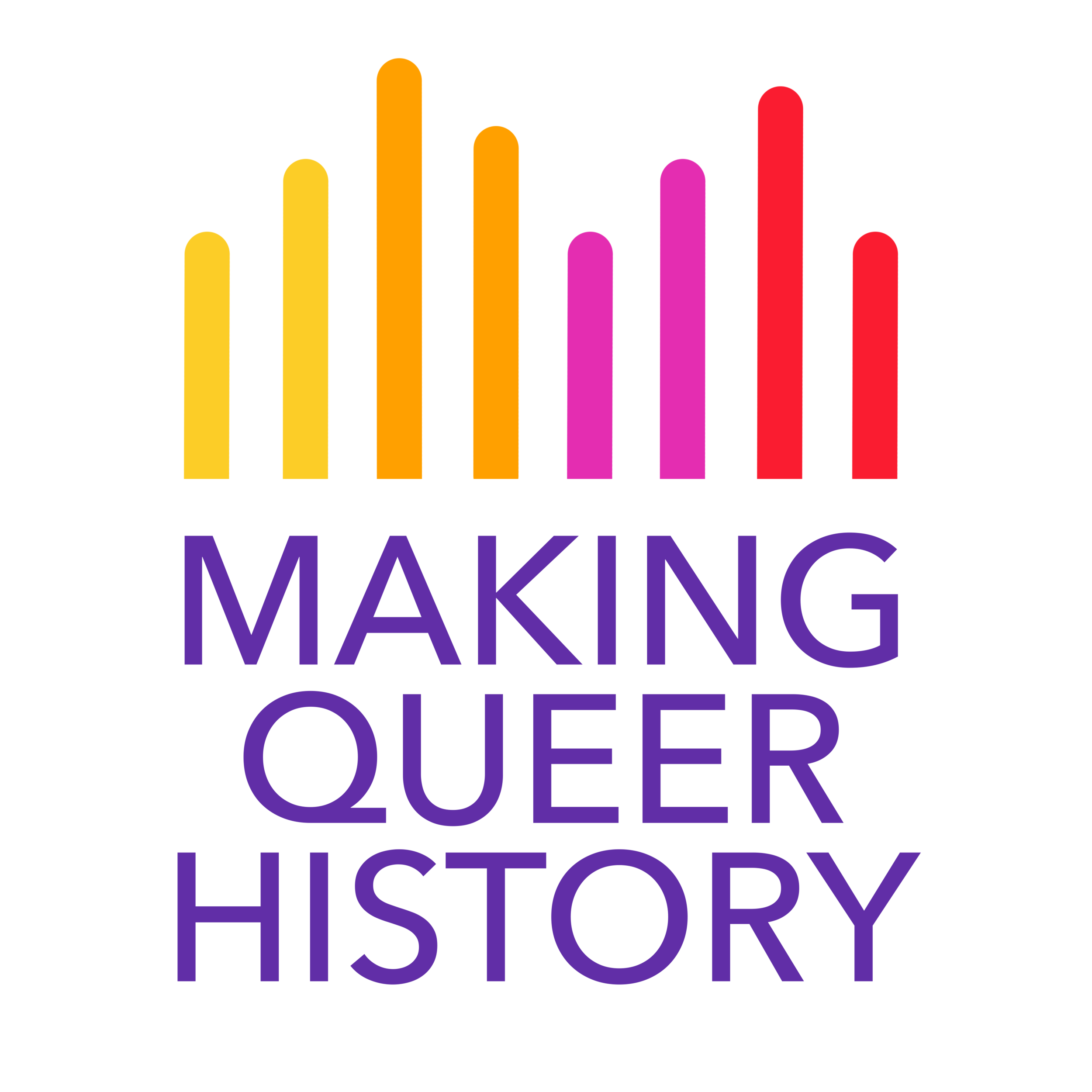Making Queer History has a vague title because it has a rather vague purpose. We are not alone in our aim to tell the queer community’s history. What defines us is our focus not only on the past, but toward the future.

Making Queer History has a vague title because it has a rather vague purpose. We are not alone in our aim to tell the queer community’s history. What defines us is our focus not only on the past, but toward the future.

Start with broad resources like encyclopedias, dictionaries, and textbooks. These will help you become more comfortable with the subject, give you a better understanding, and make it easier to figure out what you want to focus on.
Let the question take you in unexpected directions. If you feel lost or overwhelmed, let it direct you and get back on track.
What is it you want to know?
How much info do you need?
Do you want to focus on an era? A culture? A movement? A single person?
Interviews, videos, books, research journals, events, and personal accounts can all be great ways to research and answer your question. Every method has its own pros, cons, and appropriate scenarios.
For example, videos and interviews would be a great way to learn about a 20th century gay trans activist, but not a great way to learn about a 3rd century trans priestess.
Start, don’t end, with Wikipedia. Wikipedia isn’t a source, but it’s a great place to start. use their references to guide you.
Avoid jumping between sources while researching. You’ll get more out of both resources if you take the time to fully read and digest them one by one.
This is an artifact, document, diary, manuscript, autobiography, recording, or any other source of information that was created at the time under study.
Rather than giving a resource a brief once-over before adding it to an ever-expanding list, read through it thoroughly. What answers does this resource give you? How does it relate to your big question?
This also gives you the opportunity to let your research guide you, rather than trying to make all of the info you find work together later.
This is especially true if you're researching for academic or professional reasons, but it holds true for all. If you think of a question or a topic that interests you, it's great to have a dedicated place you know you'll remember. You can create a note on your phone if that works better for you.
